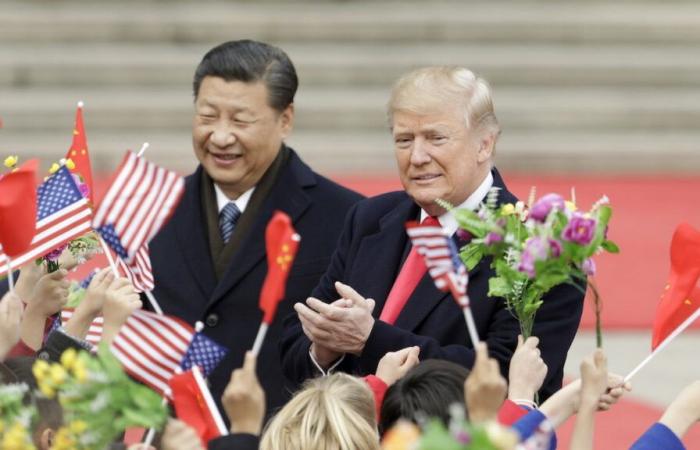Key information
- China has unveiled new measures to boost its economy amid concerns about a possible second term for Donald Trump.
- The IMF forecasts an expansion of 4.8 percent in 2024, below Beijing's target of “around 5 percent,” and expected to decline further to 4.5 percent the following year.
- China is allocating an additional 6 trillion yuan ($840 billion) through 2026 to support local governments struggling with unsustainable debt levels.
China's economic challenges
Since the pandemic, China's economic performance has faltered, facing problems including collapsing real estate, rising public debt, unemployment and weak consumer spending. To address these problems, China has unveiled new measures to boost its economy amid concerns about a second term for Donald Trump, known for his protectionist trade policies.
US tariffs and their impact
Trump's victory in the US election was based on a campaign platform that included imposing high tariffs on Chinese goods of up to 60 percent. This poses a significant threat to Xi Jinping's ambition to transform China into a technological power and could further strain relations between the world's two largest economies. During his first term, Donald Trump imposed tariffs of up to 25 percent on Chinese imports, which significantly hurt the Chinese economy.
Economic recovery and IMF projections
While the Biden administration continued these measures after Trump left office, expanding and intensifying them in some cases, China today faces a more precarious situation. The economic recovery that followed the abrupt lifting of strict Covid restrictions two years ago has failed to meet expectations. As a result, China has become a recurring source of disappointing economic news.
Public debt and recovery measures
Even before Trump's election victory and the implementation of Chinese stimulus measures in September, the International Monetary Fund (IMF) lowered its growth forecasts for China. The IMF now forecasts an expansion of 4.8 percent in 2024, which is the lower end of Beijing's target of “around 5 percent.” This projection is expected to decline further to 4.5 percent the following year.
Supporting local governments and the transition to high-quality development
China's latest plan plans to allocate an additional 6 trillion yuan ($840 billion) through 2026 to support local governments struggling with unsustainable debt levels. For decades, these governments have spurred economic growth by borrowing heavily, often to finance infrastructure projects. However, due to the slowdown in the real estate sector, some cities are struggling to meet their financial obligations.
China's ambitions and challenges
Some economists warn that China cannot rely on exports alone to overcome its current difficulties. They recall Japan's experience after the bursting of a stock market and real estate bubble in the 1990s, highlighting the risk of prolonged stagnation. To avoid this fate, they propose taking advantage of untapped consumer demand and moving away from export- and investment-led growth. This approach could not only promote more sustainable growth, but also reduce trade tensions and China's vulnerability to external shocks.
China's success in high-tech exports
China's ambitions go beyond low-cost manufacturing. The country is actively seeking to replicate its success in high-tech exports, becoming a global leader in solar panels, electric vehicles (EVs) and lithium-ion batteries. According to the International Energy Agency (IEA), China controls at least 80 percent of global solar panel production and is the leading manufacturer of electric vehicles and their batteries. Its investments in clean energy represent a third of the global total and demonstrate remarkable progress in expanding renewable capacity.
Resistance from Western countries
This progress has helped ease the economic impact of China's ongoing real estate crisis. However, the increase in exports has also attracted resistance from Western countries, notably the United States and the European Union, which are increasingly reluctant to accept Chinese products.
A crucial question for Beijing
As Trump prepares to return to the Oval Office promising to restrict Chinese imports, Beijing faces a crucial question: Will its latest economic stimulus measures be enough to confront these growing challenges?
If you want access to all articles, subscribe here!






